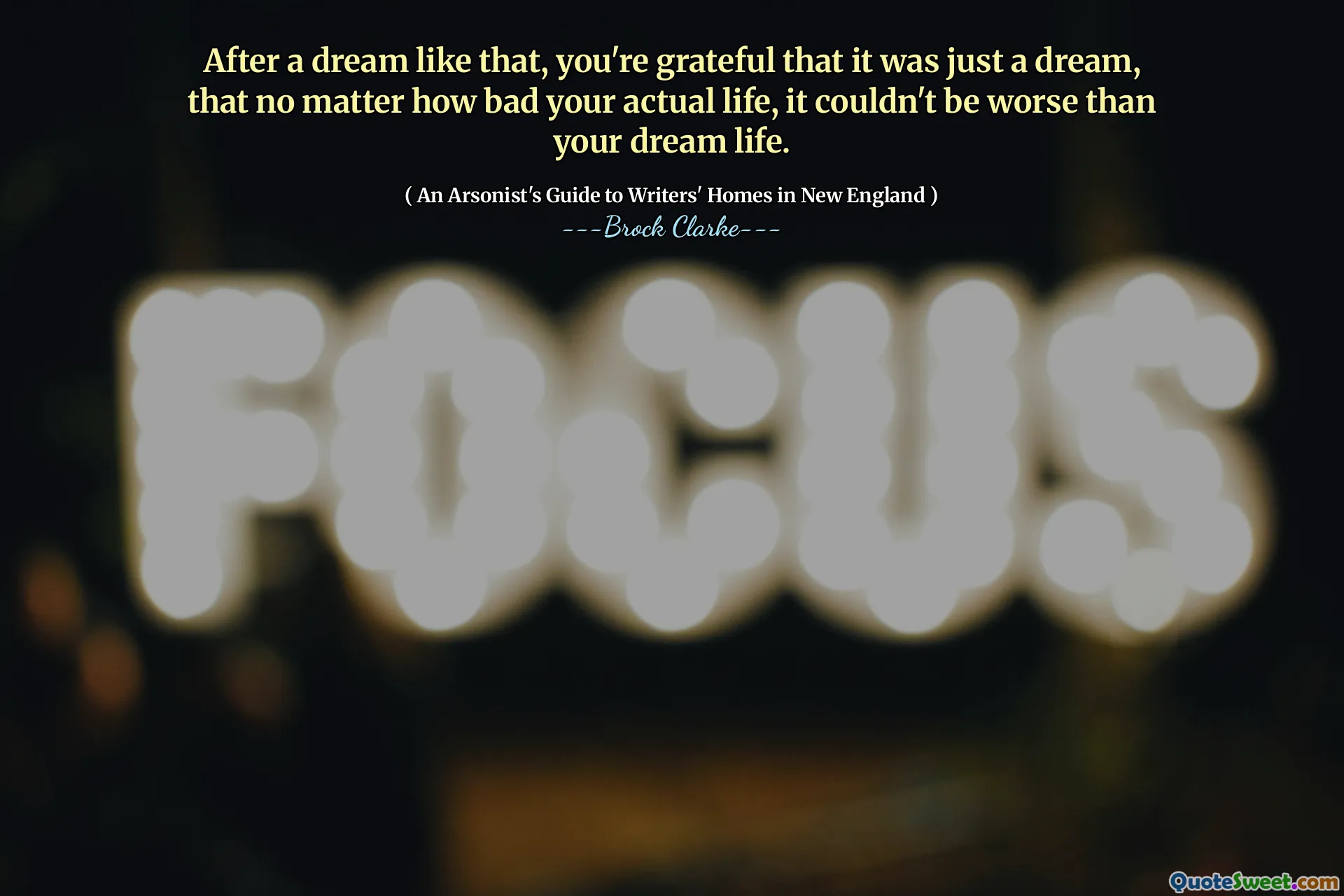
After a dream like that, you're grateful that it was just a dream, that no matter how bad your actual life, it couldn't be worse than your dream life.
This quote touches on the curious nature of how our subconscious mind can sometimes create scenarios that feel worse than our reality. It's a profound reminder of the human capacity to find solace even in suffering. When faced with an intense, distressing dream, the relief that it was just a dream speaks to a deeper appreciation for the reality we live in, however flawed as it might be. This paradox highlights a psychological truth: sometimes our fears and anxieties manifest in exaggerated or nightmarish ways in dreams, pushing us to confront the boundaries of our emotional resilience.
Moreover, the quote subtly addresses the complex relationship we have with our inner selves. Dreams often act as mirrors, reflecting unresolved tensions or subconscious worries that we might not face directly when awake. To be grateful that our real life is better than the nightmare we just experienced underscores the human tendency to seek perspective even during tough moments. It emphasizes gratitude, a feeling that can be overshadowed by day-to-day struggles but becomes clear when contrasted against something worse.
Ultimately, this quote provokes thought about the nature of suffering, gratitude, and awareness. It challenges the reader to consider that life's hardships, though real and sometimes overwhelming, also carry the gift of reality—something that nightmares lack. It's a humble invitation to acknowledge that despite the difficulties, waking life has the potential for hope and change. This perspective captures the ironic comfort that difficult experiences, even imaginary ones, can sometimes bring us.






